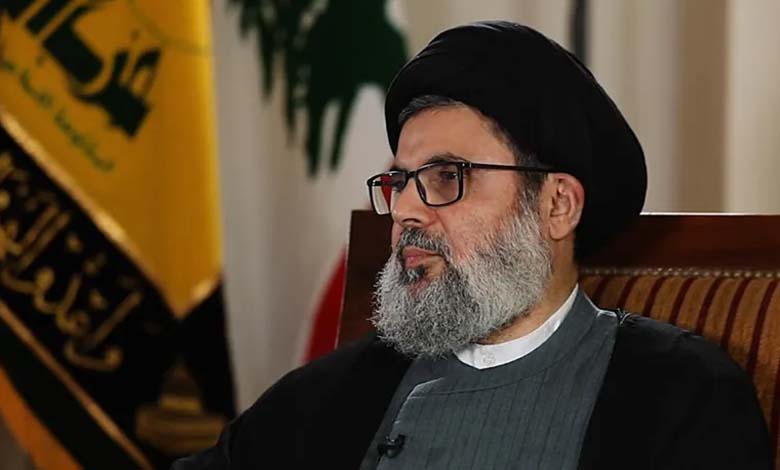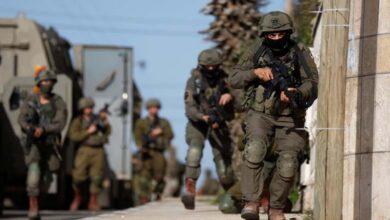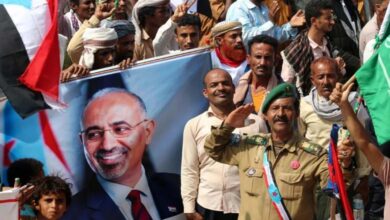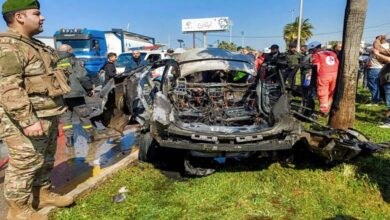Hezbollah Faces Two Choices After Nasrallah’s Assassination: Crushing Retaliation or Defeat
Hezbollah's abstention from deterring Israel after the assassination of its leader could encourage the latter to escalate its attacks on its positions and camps.

Israel’s assassination of the Secretary-General of Hezbollah, Hassan Nasrallah, the architect of the party’s power, along with the elimination of several of its top field commanders, dealt a crippling blow to the Iran-backed group. This operation, considered Israel’s greatest achievement and the most significant infiltration ever, raises questions about the potential response and the fate of Hezbollah, both organizationally and militarily.
-
Sources: Hassan Nasrallah’s injury is serious and may prevent him from appearing again
-
Hassan Nasrallah’s disease: Between reality and rumors… Hezbollah faces its worst era
Although Hezbollah operates under an internal system that defines missions and responsibilities, and outlines succession at the top of the General Secretariat in case of vacancy for any reason, Nasrallah’s assassination might put the party at a crossroads. Either it responds to Israel in an unprecedented manner, or it cements its image as being incapable of standing up to Israel and protecting itself and its popular base, analysts say.
Nasrallah, whose party is Lebanon’s foremost military and political force, has long been Israel’s sworn enemy. Since taking office in 1992, he has gained an aura as a leader who has led the party through multiple confrontations with Israel and emerged victorious.
-
Ali Karki and Other Leaders… Who Was Killed with Nasrallah?
-
Was Nasrallah Injured in the Phone Explosions in Lebanon?
Nearly a year after opening a “support” front for his ally, Hamas, from southern Lebanon against Israel, Nasrallah was killed in an Israeli airstrike in his stronghold in the southern suburbs of Beirut on Friday, following unprecedented losses suffered by his party over the past two weeks.
“If Hezbollah does not respond at this stage with a strategic strike using its long-range precision missile arsenal, then it can be assumed that it is simply unable to do so,” says Haiko Wimmen, director of the Syria, Iraq, and Lebanon program at International Crisis Group, adding, “We will either see an unprecedented response from Hezbollah… or it will be total defeat.”
-
Sinwar flirts with Nasrallah with a ‘rare’ message: Objectives and timing mystery
-
Nasrallah Awaits the Right Moment to Respond to Israel
Hezbollah is the only faction in Lebanon that retained its arms after the end of the civil war (1975-1990), under the pretext of “resisting Israel,” which occupied vast areas in southern Lebanon between 1978 and May 2000. It has a larger arsenal than the Lebanese army, according to experts.
However, after about a year of exchanging fire with Israel, the intensity of which fluctuated, Israel gradually shifted its military operation from Gaza to Lebanon, where intense raids since Monday have killed hundreds and displaced about 120,000 people from their homes.
-
Targeting a New Israeli Settlement… Nasrallah’s Escalating Threats
-
Nasrallah and Hamas Meeting: An Indication of Support and Escalation or an Attempt at Calm?
However, after about a year of exchanging fire with Israel, the intensity of which fluctuated, Israel gradually shifted its military operation from Gaza to Lebanon, where intense raids since Monday have killed hundreds and displaced about 120,000 people from their homes.
These intense raids, mainly targeting the south and east of Lebanon, have destroyed thousands of Hezbollah communication devices, with the group accusing Israel of being behind the attacks, which killed 39 people and injured about 3000 others.
-
Nasrallah Ridicules Israel’s Capability to Wage Wide War in Lebanon
-
Did Nasrallah’s meeting with leaders of Hamas and Islamic Jihad yield anything?
Last week, Israeli strikes on Beirut killed a number of Hezbollah commanders, one by one.
Sam Heller, a researcher at Century Foundation, believes Hezbollah‘s failure to respond to Israel after Nasrallah’s assassination could encourage Israel to escalate its attacks against the group.
After about a year of escalation along the Lebanese-Israeli border, Heller notes Hezbollah has not yet utilized the military capabilities it has long claimed to possess “and that most of us assumed it still retained,” even as its enemy has stepped up its strikes against the group. He doesn’t rule out the possibility that Hezbollah’s capabilities may have been “overstated” or entirely destroyed by Israel.
-
Haniyeh calls on Mikati, Berri, and Nasrallah to intervene and stop the clashes in Ain al-Hilweh
-
Nasrallah, attacks the Gulf and does not oppose dialog with it
Since the summer 2006 war, in which Hezbollah fought Israel and “defeated the Israelis,” the party has, according to Heller, established a “long-term deterrence equation” with Israel, but it is “clear today that it can no longer protect itself.”
With the loss of their leader and Lebanon’s most influential man, Hezbollah‘s supporters, displaced by Israeli raids and mourning family members, will demand more than a symbolic response, according to analysts.
Amal Saad, a professor at Cardiff University and an expert on Hezbollah affairs, believes the party, now leaderless after this severe blow, will have to strike a delicate balance in its response.
-
Iran doctors treat Nasrallah amid reports of stroke
-
Nasrallah: If the blast of Beirut appears as an act of destruction by Israel, it would pay an equal price
She expects Hezbollah will try, on the one hand, to avoid provoking Israel into “launching a massive bombing campaign against Beirut or other parts of Lebanon,” while being compelled to “boost the morale” of its supporters and fighters.
Hezbollah will also need to prove it can protect its people and avenge Israel, while maintaining peace among Lebanon’s various sectarian components, which are divided over key issues, including Hezbollah‘s control over war and peace decisions.
-
Gaza Setback and the Success of Israeli Spies: An Analysis of Hezbollah Infiltration
-
Gray Morning in Beirut… and Israel Continues to Bomb the Suburbs
Tens of thousands of supporters of the Tehran-backed Shiite party have fled from the south, east, and southern suburbs of Beirut to other regions with different sectarian compositions, seeking refuge from Israeli raids.
Mohanad Hage Ali, a researcher at Carnegie Middle East Center, believes Hezbollah’s recent losses have “paralyzed” it, while warning against entirely writing the party off.
“It will need new leadership, a new communication system, rediscover its narrative, and reconnect with its popular base,” he said, “but it will be very difficult to imagine the organization disappearing that quickly.”
-
The “gouged eyes” could have been avoided… Here’s what Hezbollah overlooked
-
Did Mossad Rig Hezbollah’s Communication Devices in Taiwan?
Hezbollah leaders have always insisted that the elimination of some of its cadres does not compromise the party’s military structure or its operational capabilities.
In this context, Saad explains Hezbollah‘s structure as an armed group is “designed to absorb such shocks,” citing, for example, the assassination of Imad Mughniyeh, Hezbollah‘s top military commander, by a car bomb in Damascus in 2008, attributed to Israel. She adds: “When the dust settles, Hezbollah’s performance does not rely on one person,” clarifying that Nasrallah, in the end, “is not a mythical figure, but an ordinary man.”












